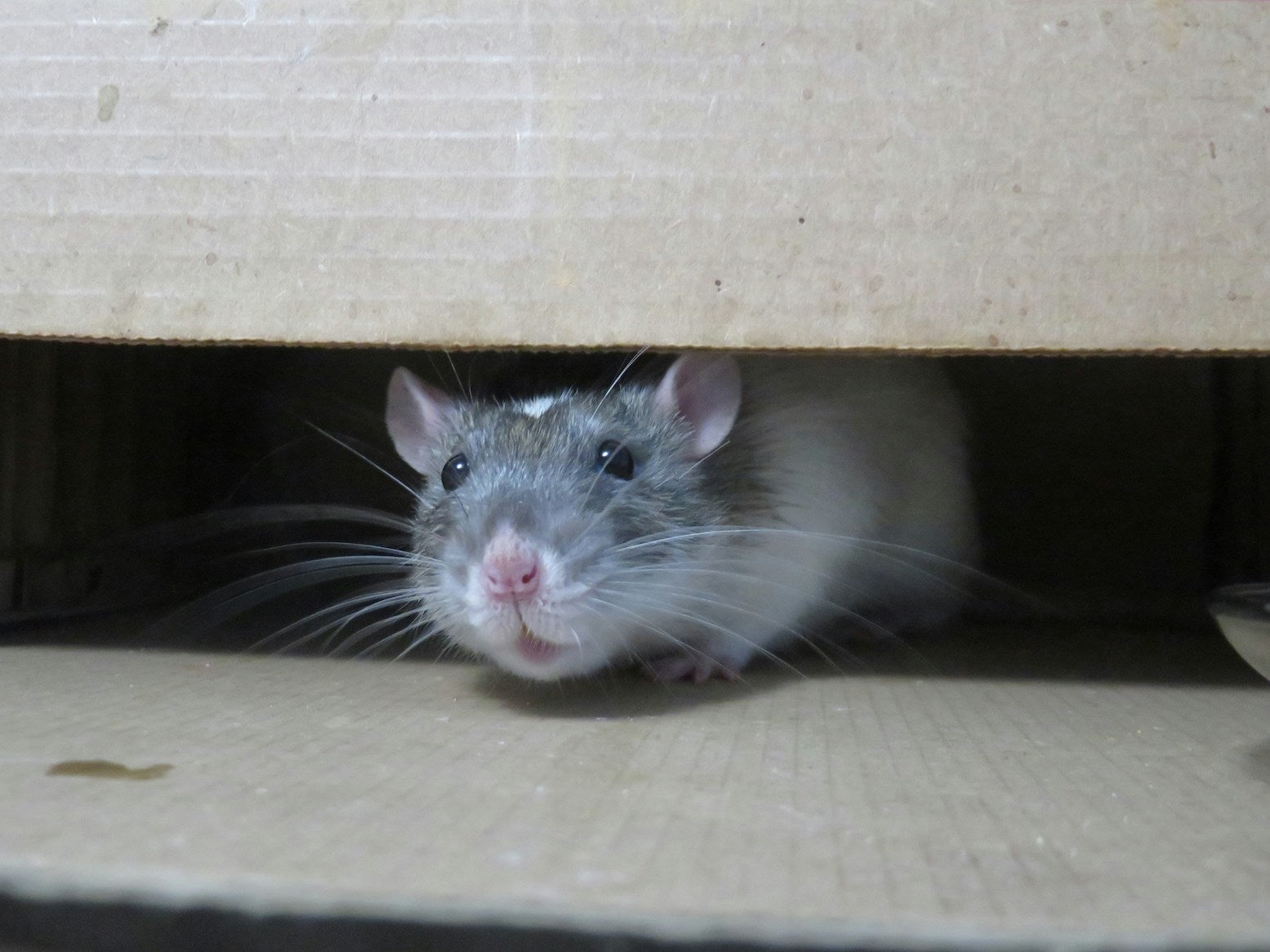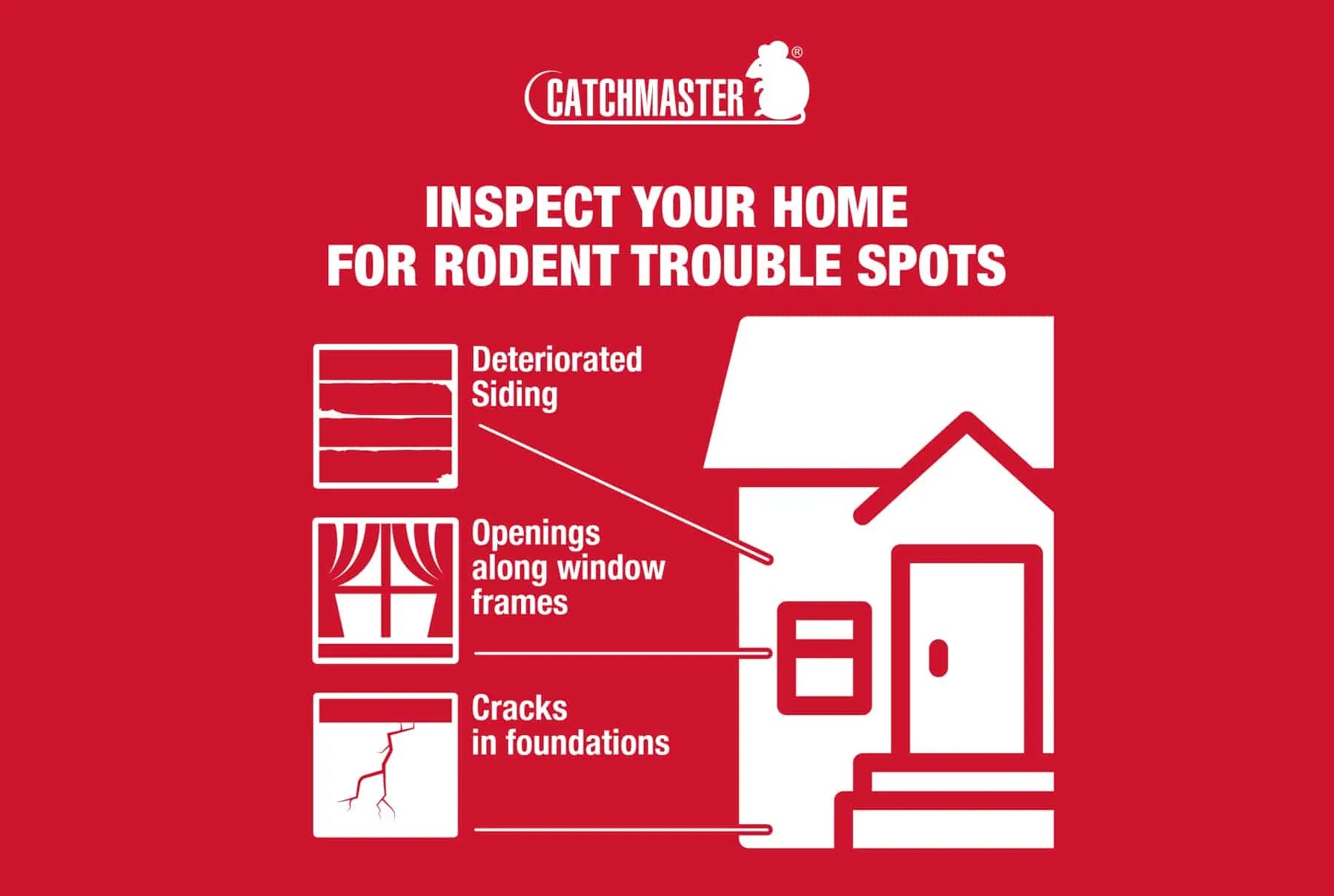
Mice and rats don’t hibernate, but that doesn’t mean there isn’t a particular season when you’re more likely to find them inside your home.
Just like how we change our habits when seasons change, mice and rats do, too! Learning what time of year mice are most active will help you to protect your home from unwanted visitors.
What is Rodent Season and How Long Does It Last?
While mice are active throughout the year, rodent seasons are when mice and rats are most likely to enter homes and buildings. As the weather turns cold, they might move in as they’re looking for food, water, and a warmer place to live. In colder northern areas, it might start earlier in the fall and last longer into spring. Warmer regions in the south may experience a shorter rodent season.
When Does Rodent Season Start and End?
Mice season typically begins in late September or October when outdoor temperatures start to drop. Rat season follows a similar pattern, with these larger rodents also seeking shelter when temperatures drop.
Rodent activity typically peaks during the colder months, from November to February. As temperatures rise in March or April, mice and rats often reduce their presence indoors, as they can find ample food and shelter outside once again.
This timing can vary depending on the weather patterns in your area. An early cold snap might bring rodents indoors sooner, while a mild winter could mean fewer uninvited guests.
Why Rodents Move Indoors During the Season
Rodents head inside during mice and rat season for a number of reasons, including:
- Warmth. When temperatures drop, they look for warm places (like your house!) to build nests and raise their young.
- Food. As the weather turns colder, gardens stop producing, seeds become scarce, and insects die off or hibernate. Meanwhile, your kitchen has plenty of food all year round! Even tiny crumbs can attract hungry rodents.
- Water. When outdoor water sources freeze in winter, mice and rats must find alternative sources of water to drink. Leaky pipes, pet water bowls, and even condensation can provide all the water they need.
- Protection. With fewer leaves on trees and less ground cover, mice and rats become easier targets for owls, hawks, and other predators. Your home offers safety from these threats.
- Nesting Materials. Rodents need soft materials to build comfortable nests. During rat season, your home provides plenty of these materials in a protected environment.
The Risks of Rodents in Your Home
Rodents in your home aren’t just an annoying problem. These serious issues will have you wondering how to best catch a mouse!
- Health risks. Rodent droppings and urine can contain harmful bacteria and viruses. Whenever these pests share your living space, they contaminate surfaces and put you and your family at risk.
- Property damage. Mice and rats have teeth that never stop growing, so they must constantly chew to keep them worn down. They gnaw on wood, plastic, drywall, and even electrical wires. If they damage electrical wires in your walls, it could even cause a fire!
- Food contamination. Rodents can chew through boxes and bags to reach food, leaving it unsafe to eat. During mouse season, it's especially important to store food in sealed containers.
- Sleep disruption. Mice are most active at night, and the scratching, squeaking, and scurrying sounds in your walls or attic can keep you awake.
Key Steps to Prepare for Rodent Season
Now that you know when mice come out, you can start preparing yourself to protect your home:
- Seal entry points around your house. Mice can squeeze through holes as small as a dime! Check your foundation, walls, doors, and windows for gaps. Use steel wool, caulk, or metal flashing to seal any openings you might find.
- Remove food sources by keeping your kitchen clean and storing food in airtight containers. Don't leave pet food out overnight, and be sure to clean up crumbs and spills immediately.
- Eliminate water sources by fixing leaky pipes and faucets. If possible, avoid leaving water bowls out overnight. Remember that rodents need water to survive, so removing easy access to it makes your home less attractive to them.
- Reduce clutter inside and outside your home. Piles of newspapers, cardboard boxes, and leaf litter provide rodents with ideal hiding places and nesting sites. During rat season, cleaning up storage areas can make a big difference.
- Trim trees and shrubs that touch or hang over your house. Rodents are good climbers and can use branches as bridges to your roof or upper floors.
- Set traps in strategic locations if you notice signs of rodents. Mouse traps can be placed along walls where rodents typically travel, especially in areas where you've seen droppings or gnaw marks.
Stop Rodents Every Season with Catchmaster
With Catchmaster® on your side, you never have to wonder when mouse season is! Our best-selling mouse traps will keep your home rodent-free all year long.
By making our mouse and rat traps part of your regular home maintenance routine, you can stop infestations before they start. Just as you change smoke detector batteries twice a year, you should also regularly check and replace your rodent traps to maximize their effectiveness.
Don't wait until you hear scratching in your walls to learn how to catch a rat! With professional-grade products like Catchmaster’s mouse and rat traps, you can enjoy peace of mind all year long.



